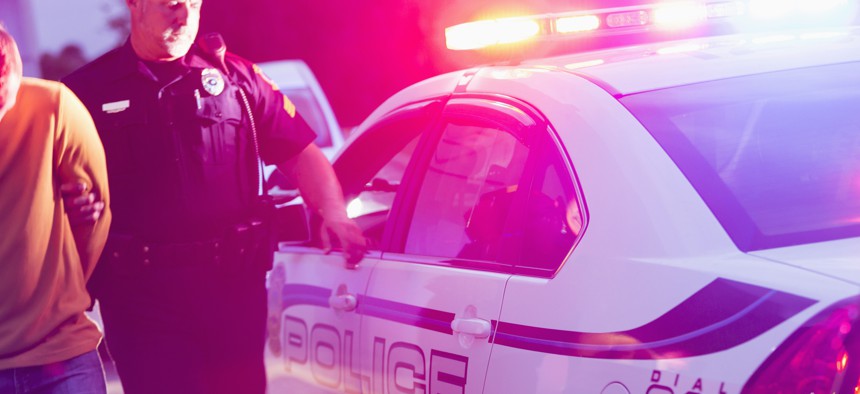Police Oversight Boards Proliferate After George Floyd's Death

Getty Images/Kali 9
A new report says that the growth of review boards could “reshape the landscape of civilian oversight.”
The nationwide activism that followed the killing of George Floyd by a Minneapolis police officer in 2020 helped spur a sharp rise in the number of law enforcement oversight boards across the U.S., according to a paper by a University of Chicago Law School professor.
In one year, there were 25 civilian law enforcement oversight boards formed around the country, the same total number that were established during the previous four years, the study found. This “unprecedented level of productivity” in board formation could “reshape the landscape of civilian oversight," the paper added.
A lack of transparency in policing is a growing concern for communities nationwide, and there is a ballooning list of incidents involving citizens and police where “law enforcement failed to provide accurate and timely Information,” the report said. The author, law professor Sharon R. Fairley, wrote that her survey of the 100 most populous U.S. cities shows that communities continue to value these boards as an effective way to hold law enforcement accountable and to allow for residents’ input into policing policies and operations.
In 2021, 71% of the 100 cities surveyed had at least one civilian oversight board. Besides reviewing police misconduct issues, the boards may also work on matters such as audit and adjudication tasks.
Of the 111 oversight entities reviewed, 65% were boards that consisted of people who were selected or appointed and 28% were agencies comprised of one or more paid employees. About 7% of the cities studied had a board and an agency.
Successes and Challenges
The report highlighted a handful of cities that implemented or revamped oversight boards from 2020 to 2021. For example, Philadelphia residents voted in November 2020 to create an oversight commission to replace its Police Advisory Commission. In May 2021, the City Council passed an ordinance providing the powers and structure of the commission, which will investigate all misconduct complaints and wield subpoena power, according to the report.
That same November, San Diego voters approved a ballot measure to create the civilian Commission on Police Practices, which can conduct investigations and subpoena witnesses. In a rare show of support, the report noted, the police union endorsed the move.
Not all these initiatives have gone so smoothly, though. For instance, Raleigh, North Carolina’s City Council created a five-person police advisory board in 2020 to oversee the department’s policies and procedures. However, the board does not have subpoena power because that must be granted by the state. Within one year, the board criticized its lack of power, and two members resigned, according to a TV news report cited in Fairley's paper.
For more information from the report click here.
Jean Dimeo is a managing editor of Route Fifty.
NEXT STORY: Congress is Looking at Offering Grant Incentives for States to Adopt ‘Red Flag’ Gun Laws





